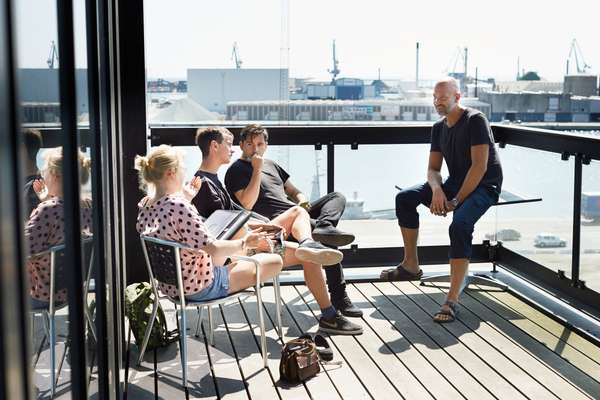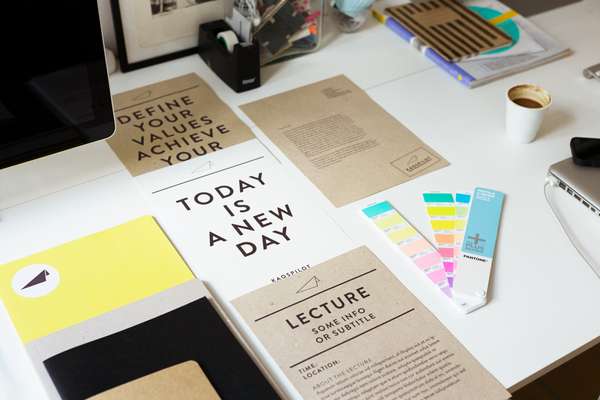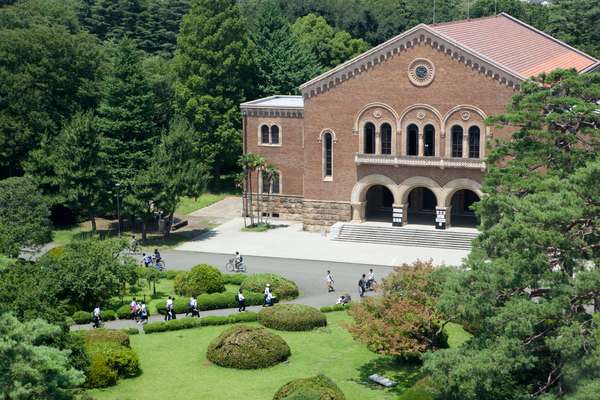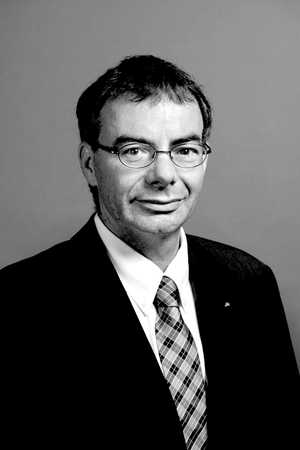Schools: MBAs / Global
Changing times
The MBA has always been a target for executives looking to rise up the ranks. But be it globalisation, economic instability or the tech boom, the business world is constantly shifting in both its fortunes and its focus. How are MBA programmes — and the business schools that design them— expected to keep up? Here, we talk to three schools about how they stay relevant.
1.
New world Sauder
Vancouver
MBA professors have been quietly adjusting their academic programmes since the crash of 2008, and nowhere more so than the Sauder School of Business at the University of British Columbia (UBC). Last year, the school announced a new, retailored MBA increasing the hands-on learning experience, and as of this autumn Sauder is introducing a special entrepreneurship course. Besides focusing on strategic management, it also encourages students to master a new set of “soft” skills.
“A good MBA can’t just rely on traditional corporate finance or risk management,” says dean Robert Helsley of Sauder’s new approach. “Students need to examine the industry in the broader context: more creativity, marketing and training in real companies is a must.” Quick to share his enthusiasm is Moura Quayle, professor of strategic design, who heads Sauder’s d.studio, a new platform teaching students how to apply design strategies to addressing business problems. “We push students to think expansively and use ambiguity to find out-of-the-classroom creative solutions,” she says.
Global experience is also mandatory at Sauder with each student spending weeks at partner schools abroad. Making the most of its Pacific Rim location and proximity to Asia, the UBC (through Sauder) established a regional office in Hong Kong in 2005, developing one in India. It is also partnered with the SP Jain School of Global Management in Singapore.
Sauder’s premises in the heart of the UBC’s campus have recently received a ca$70m (€51.3m) facelift and 5,100 sq m of new space. Besides a rooftop conference centre and three lecture theatres, the school now houses the isis research hub where students muse on building a low-carbon economy. Meanwhile the Wayne Deans investment analysis centre with its Bloomberg terminals and Standard & Poor’s workstations grants them real-time access to global capital markets.







As Monocle leaves, the future investment bankers sit rapt before the glaring screens of rolling equity index data and bond quotes, learning how to avoid the mistakes of their predecessors. “Managers today are in desperate need of a more diverse set of skills,” says the dean. “We want to create leaders who can deal with globalisation – not just focus on profit and share value. [It’s about] educating ethics and sustainability.”
The lesson: MBAs must cultivate ethical business minds through a diverse and creative curriculum.
2.
Dane to believe
Aarhus
“You won’t find any textbook assignments or auditorium-style lectures here,” boasts Christer Windeløv-Lidzélius, the principal of KaosPilot as he shows Monocle around his stunning new glass campus in a former industrial area of Aarhus’s port. Instead, students at this alternative business school learn by doing, taking on projects for big-name clients, which have included Cisco, sas, Carlsberg and Lego. From its base in Denmark’s second-largest city, KaosPilot trains fleets of entrepreneurs and business leaders. “When students first arrive, they are given two things, a key to the campus and a stack of business cards,” adds Windeløv-Lidzélius. “They can start building their networks from day one.”
KaosPilot is the brainchild of Uffe Elbæk, a prominent Danish politician and Denmark’s former minister for culture. Established in 1991, the school’s roots trace back to a Danish youth movement known as the Frontrunners that famously organised a pro-democracy rock concert in Moscow at the height of the Cold War. “There was no school in the world back then that could have taught us how to negotiate with the kgb,” says Uffe, with a grin. “We asked ourselves, what kind of education could we create to help us do what we were doing?”
Within the lofty halls of the new KaosPilot campus in Filmbyen, Aarhus’s up-and-coming creative hub, these grassroots seem a world away. The school is in the midst of a rebranding process. “We’re 22 years old. We’ve gone through childhood, teenage years and are now moving on to adulthood", says David Storkholm, a former student who now heads KaosPilot’s executive training programme.
And learning isn’t confined to the classroom, or even the country. Each year, the entire school jets off to tackle a pressing social issue overseas. In 2012 they were in Bogotá, and this year Cape Town. This, coupled with a 2005 decision to switch the language of instruction to English, has contributed to the programme’s popularity abroad. Upon graduation, opportunities in myriad sectors await the “KaosPilots”. “Being a KaosPilot is a lifelong identity,” beams Eva Kruse, now the ceo of the Danish Fashion Institute. “It led me to where I am today.”
The lesson: KaosPilot combines an artistic, expressive ethos with project-based study – and it works.
3.
Turning Japanese
Tokyo
Reviving a struggling company is standard fare in any MBA curriculum. But learning how to do that in a Japanese corporate setting that values consensus-building and employee loyalty is unique to Hitotsubashi University’s programme. “It’s a bottom-up approach. You create a movement from within the company – it’s not the Superman ceo approach,” says Motohiro Morishima, a professor at the university’s graduate school of commerce and management, in Tokyo.
Most Japanese companies still prefer to groom their leaders in-house. But an MBA is becoming a popular way of getting ahead for executives in Japan. Since the government began accrediting graduate schools that train professionals in 2004, more than 30 business schools and dozens of other graduate-level MBA programmes have cropped up. Hitotsubashi’s MBA programme, which started four years before the government’s accreditation system, has 160 students, around a third of whom are mid-career professionals sent by Japanese companies.
With its brick buildings, bicycle paths and vast library, the campus is an idyllic setting to study. “It’s more like an American campus than one you would expect to find in Tokyo,” says Morishima.
The lesson: Business education is global yet some courses must meet local cultural demands to remain relevant.

Q&A
Thomas Bieger
Chairman, CEMS
Switzerland
As well as his role as president of the University of St Gallen, Professor Bieger heads up CEMS, an alliance of the world’s leading business schools.
How useful is a formal business education for budding entrepreneurs?
Business education for entrepreneurs provides three core competencies. Firstly, in marketing — understanding how customers decide what products to buy — which helps you to develop marketing strategies. Secondly, every start-up needs sound financing. You need to know about business planning and financial instruments. Lastly, and I think most importantly, practical work such as giving speeches, making sales calls and convincing others to buy your products or work hard for you.
In the classes you teach, can you tell which students are more entrepreneurial than the others?
You get a gut feeling when you observe how students work. My colleagues have completed scientific evaluations on the entrepreneurial capacity of students. What we see is that the entrepreneurial spirit depends very much on the culture in which a young person grew up, as well as their family background.
Upon graduation what are the first steps you should take in setting up a new business?
It is important to learn about the market. Young students often come up with wonderful business ideas but they struggle to get them off the ground. You have to learn from the failures and successes of others. Even if you want to be an entrepreneur, it’s important to start your career in an existing company. This might be different in sectors such as IT, but in a traditional sector you should go to the leading companies, work up the career ladder, work with customers and learn at every level.


